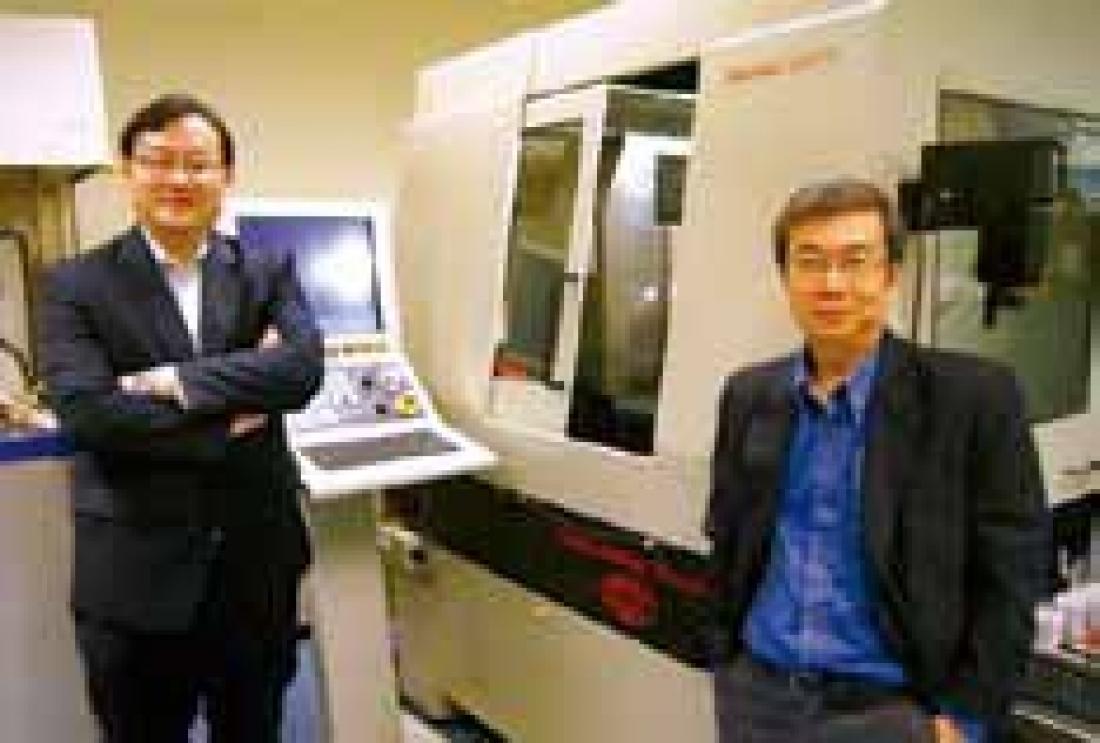Dr Benny Cheung (left) and Prof. W.B. Lee
The research efforts of two PolyU scientists in the modelling and characterization of nano-surface generation in ultra-precision machining have been recognized with a Natural Science Award (Second Class), conferred by the Ministry of Education of China as part of the Higher Education Outstanding Scientific Research Output Awards 2010. The two scientists, both from the Department of Industrial and Systems Engineering, are Dr Benny C.F. Cheung (Principal Investigator), Associate Professor, and Prof. W.B. Lee (Co-investigator), Chair Professor.
There has been growing demand in recent years for high-precision components with a nanometric surface finish. Such components are widely used in a variety of high-tech industries, including advanced optics, telecommunications, biomedical science and aerospace technology. Because the quality of the machined surface is critical to the functional performance of high-precision components, the process of nano-surface generation has attracted significant research interest.
In many Industrial applications, the achievement of a super mirror surface finish at the nano-scale via Single Point Diamond Turning (SPDT) remains highly dependent on the experience and skill of the machine operator. Optimum surface quality is achieved through an expensive trial and error approach whenever new materials or machine tools are introduced.
The machining of a super mirror surface at the nano-scale demands research into novel nano-surface generation modelling and characterization, particularly if the cutting process is to become more predictable and cost-effective. The research team has conducted extensive theoretical and experimental research investigating the factors that affect nano-surface generation and its mechanisms and, accordingly, has developed a number of novel surface topography models and surface characterization methods.
The research results not only allow a better understanding of the theory of nano-surface generation mechanisms, but also provide important means for optimizing the quality of machined surfaces at the nano-scale. They thus make a significant contribution to the advancement of ultra-precision machining technology and its applications.
Recognizing PolyU’s research achievement in ultra-precision machining technology, the Ministry of Science and Technology of China approved the University’s establishment of a State Key Laboratory in Ultra-precision Machining Technology in 2009.
This article was first appeared on PolyU Milestone, June 2011 Edition



